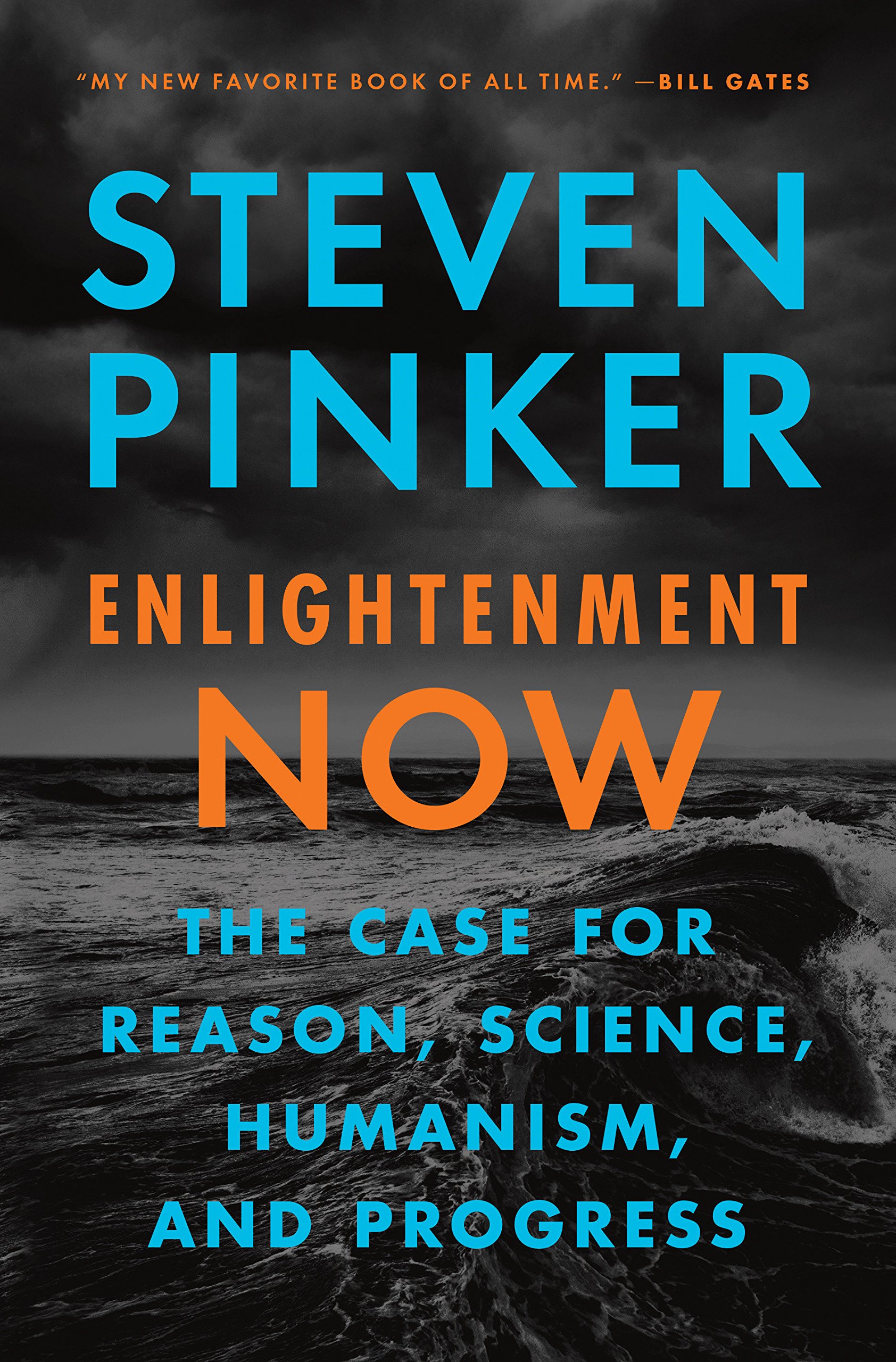Enlightenment Now by Stephen Pinker

The enlightenment mindset is a relatively new ideology that emphasizes questioning all dogmas, treating experimental measurement as the supreme source of truth, prioritizing human flourishing as an end goal, and viewing human suffering as a problem to be solved rather than an inevitability to be endured or glorified.
Starting about 200 years ago, enlightenment allowed the West to pull far ahead of the rest of the world. GDP has since increased a hundred-fold, longevity has skyrocketed, many deadly infectious diseases have become irrelevant, accidental and workplace deaths have fallen, many barbaric cultural practices have died out, small-scale violence has declined, war has gone from being commonplace to being taboo, populations have stopped getting wiped out by famines caused by bad weather, transfers of political power have become increasingly peaceful, literacy has skyrocketed, more people hold emancipatory political views, formerly marginalized demographic groups have joined mainstream society as equals, work hours have fallen, retirement has gone from being an impossibility to being a birthright, self-reported happiness has risen, and countless predictions about the collapse of civilization have failed to come true. These trends have continued into the 2000s and 2010s despite widespread pessimism and denial that progress is even happening.
In the second half of the 20th century, the developing world started catching up to the West at a rapid pace by adopting the enlightenment mindset. No region of the world has been left behind. Even the world’s most wretched countries today are better off in absolute terms than the world’s richest countries 250 years ago.
Many modern problems become less threatening when viewed in a historical context. The Islamist insurgency is small and localized compared to the 20th century’s various nationalist, secessionist, and Marxist militant groups. Current forecasts of upcoming food and energy scarcity are tame compared to the predictions of mass starvation just a few decades earlier which technological improvements successfully averted. Right-wing populism in the West is largely reacting to recent trends and is not proposing to roll back hundreds of years of progress. GHG-induced global warming is a relatively benign environmental crisis when compared to the industrial era, when people literally lived in filth. The thought of Kim Jong-Un with a dozen nuclear weapons is less scary than the though of Stalin or Mao with many times more. Inequality, the buzzword of the 2010s, is actually falling on the scale of the world.
Enlightenment has always faced attacks from multiple fronts. People have many built-in cognitive biases that encourage unenlightened and pessimistic thinking, including a lack of intuition for statistics, a tendency to see imaginary causations, a habit of seeking villains instead of solutions, a tendency to romanticize the past, an extreme sensitivity to future threats, and a tendency to blindly accept the political opinions of their immediate tribe. However, education, the free flow of information, and a scientific approach to political matters are all helpful in countering these tendencies. The humanities fields are currently trying to demonize science in order to prevent its encroachment into their domains. However, holding the arts and humanities to scientific standards would open up many exciting research opportunities and cure the left-wing culture rot that currently exists in those fields. Religious fundamentalists see science and humanism as having created a spiritually sterile world and are itching for a religious resurgence. However, it is hard to see such a resurgence happening in a world where each new generational cohort is much more skeptical of religion than the one before. Authoritarian populists are refining a counter-enlightenment ideology that frames history as a struggle between rival groups and that emphasizes strength, glory, and purity. However, this ideology is unpopular even in the countries in which it has had political success and its support is concentrated among older and less educated demographics.
For all their differences, the many cultures of the world broadly agree that truth and reason are good, that human flourishing is a noble goal, and that human civilization has the ability and duty to improve itself. The resulting enlightenment ideology is simple, universal, and self-evident. The results of the enlightenment speak for themselves; even the most die-hard regressives accept the improvements it has brought to human life. As the world globalizes and freedom of movement for information, people, and goods continues to expand, enlightenment and its benefits are poised to become even more universal.
